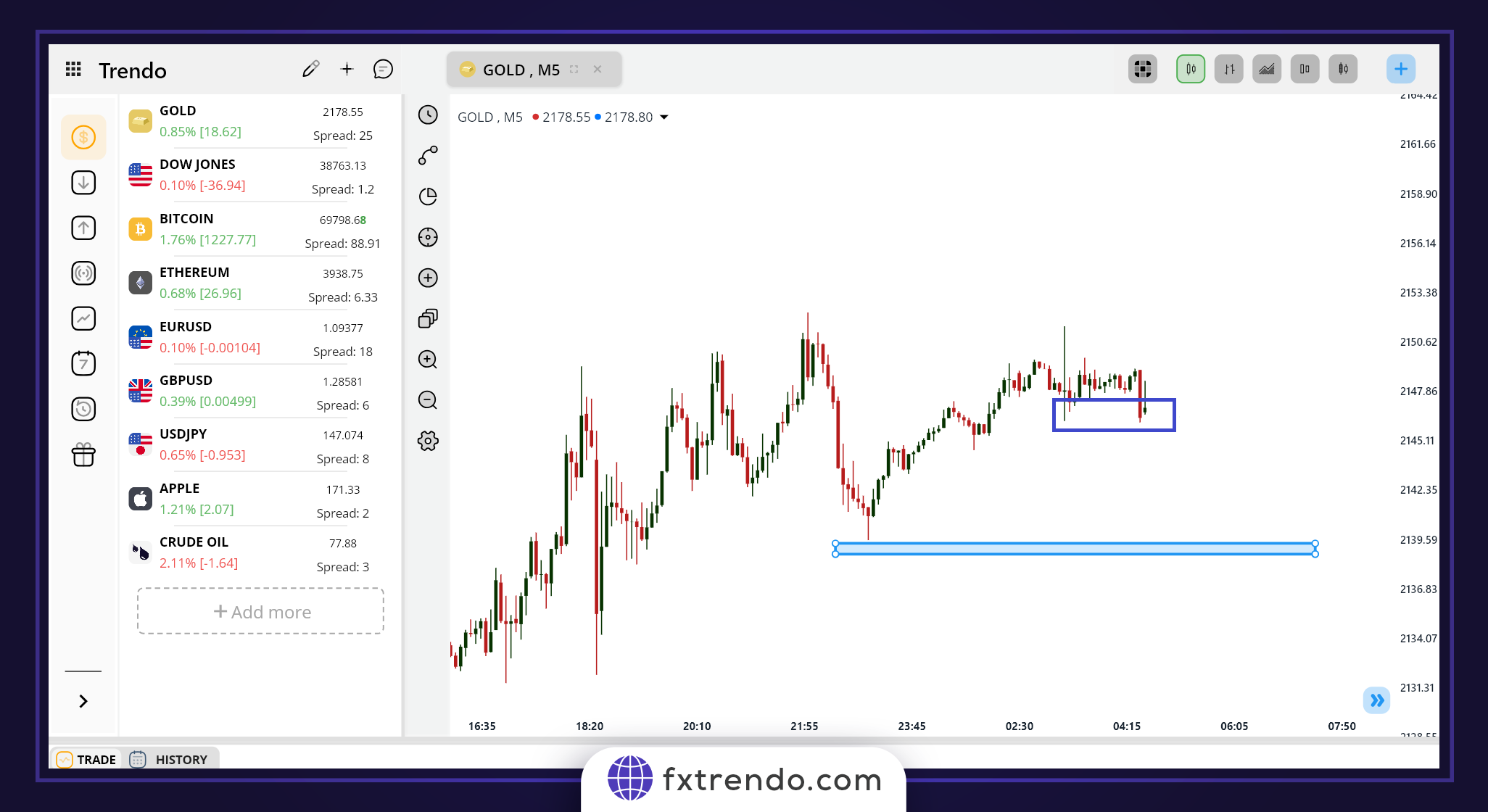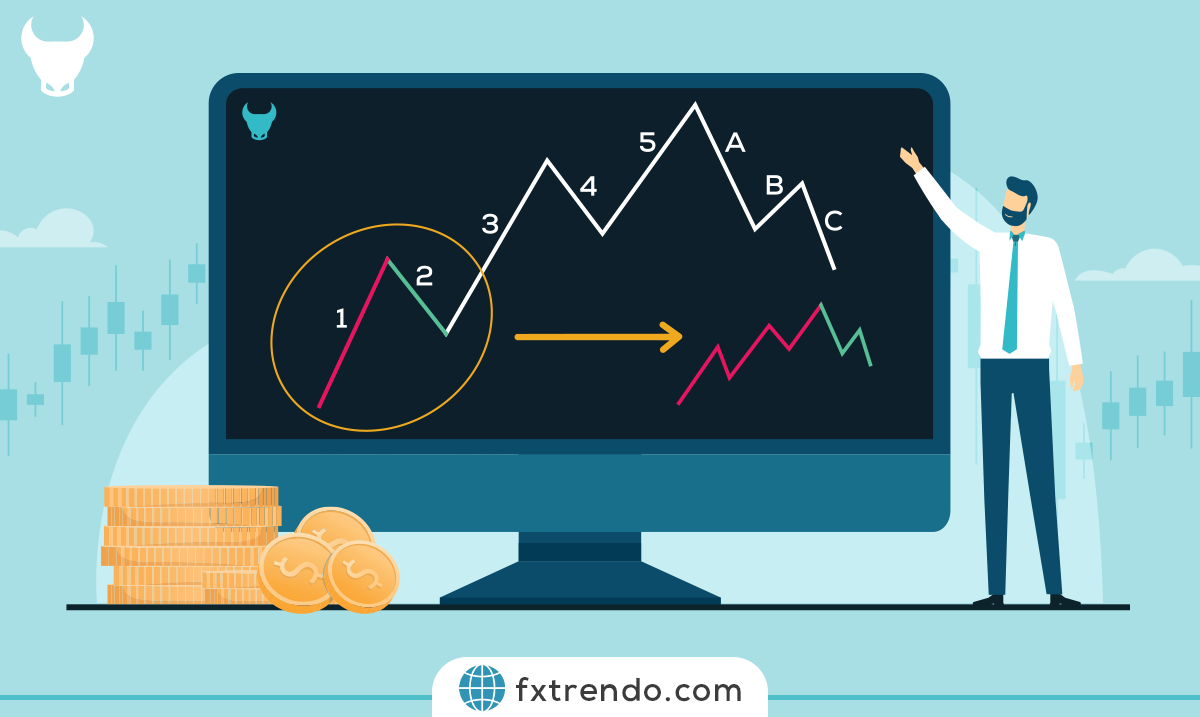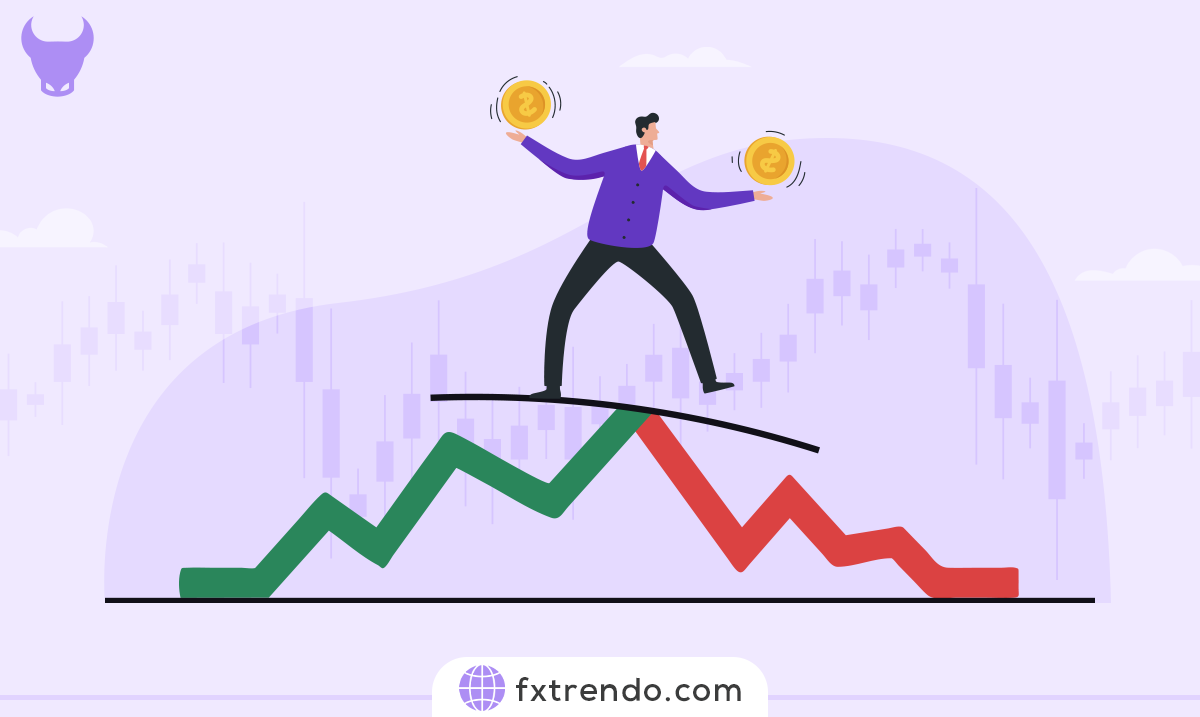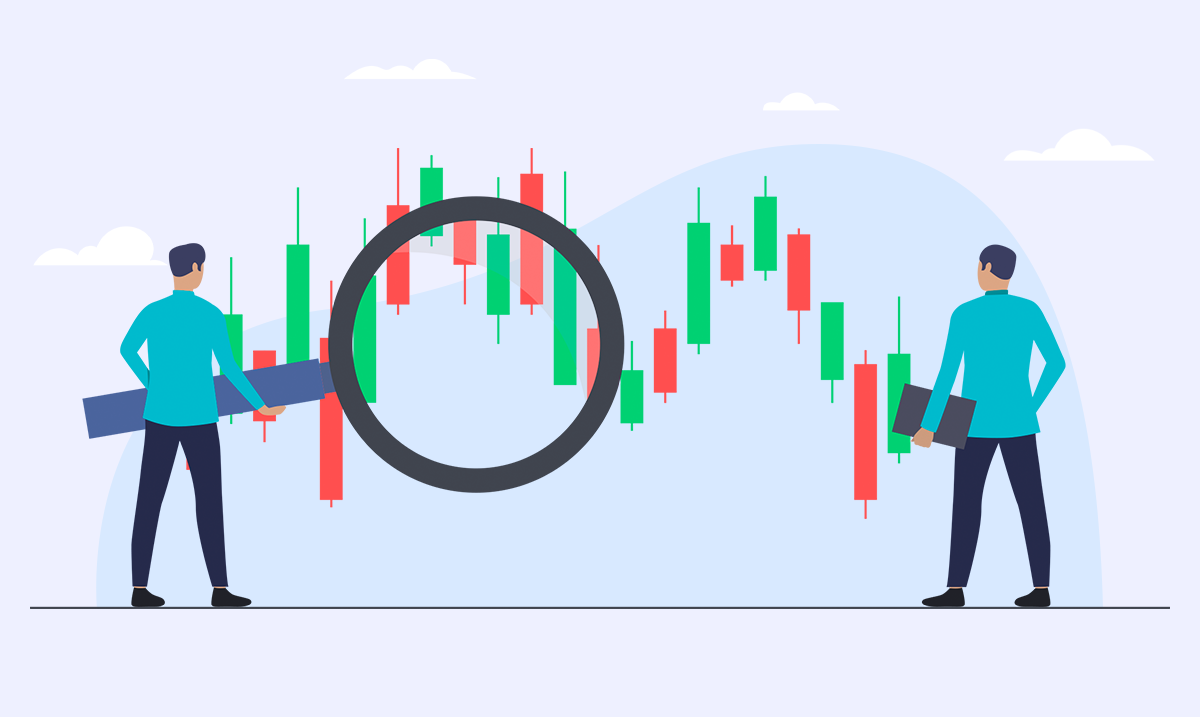What is a Lot or trading volume in the forex market?


In the world of forex trading, the concept of ‘lot’ or ‘trading volume’ holds significant importance. It is a fundamental concept that traders need to grasp before embarking on their journey in the fascinating world of trading.
The reason behind its criticality lies in its role in risk assessment and capital management. Without a clear understanding of what a ‘lot’ is, these crucial aspects of trading become unattainable. In this article, our educational team at Trendo will delve into this concept in detail. So, stay tuned for an enlightening discussion!
Contents
What is the trading volume and Lot?
In the forex market, the term ‘trading volume’ or ‘lot’ refers to the quantity of a currency pair or asset that is bought or sold. Traders determine the volume of their transactions in terms of ‘lots’. A single lot is equivalent to 100,000 units of the base currency. For example, buying 1 lot of the USDCHF currency pair means buying $100,000 against the franc currency.
When it comes to the relationship between leverage and lots, it’s important to note that an account with higher leverage allows for trading more lots. This is because higher leverage necessitates a smaller margin or credit for trading. Thus, the potential for trading increases with the leverage of an account.
Types of lots in the forex market
Brokers typically offer four types of volumes or lot units to cater to a wide array of traders with varying capital. These are:
Standard Lot: This refers to a lot size of 100,000 units of the base currency. To illustrate, consider a trader who executes a transaction of 1 standard lot in the EURUSD currency pair at an exchange rate of 1.17. In this scenario, the trader, excluding leverage, would need to purchase 117,000 euros. Consequently, in this type of transaction, each pip movement in price equates to a value of $10.
Mini Lot: Mini lot refers to a lot size of 10,000 units of the base currency. For instance, if a trader executes a transaction of 1 mini lot in the EURUSD currency pair at an exchange rate of 1.17, the trader, excluding leverage, would need to purchase 11,700 euros. In such a transaction, the value of each pip of the price movement will be $1.
Micro Lot: The micro lot size equals 1,000 units of the base currency. For example, if a trader executes a transaction of 1 micro lot in the EURUSD currency pair at an exchange rate of 1.17, the trader, excluding leverage, would need to purchase 1,170 euros. In this type of transaction, each pip movement in price corresponds to a value of $0.1, or 10 cents.
Nano Lot: The nano lot size equals 100 units of the base currency. For example, if a trader executes a transaction of 1 nano lot in the EURUSD currency pair at an exchange rate of 1.17, the trader, excluding leverage, would need to purchase 117 euros. In this type of transaction, each pip movement in price corresponds to a value of $0.01, or 1 cent. However, it’s worth noting that this type of trading volume is seldom used in forex trading activities, and most brokers do not support transactions of this volume.
Read More: How to use Take Profit and Stop Loss in Forex trading.
The types of lots with full details are shown for comparison in the table below:
Alt: Trading volume and pip and lot connection
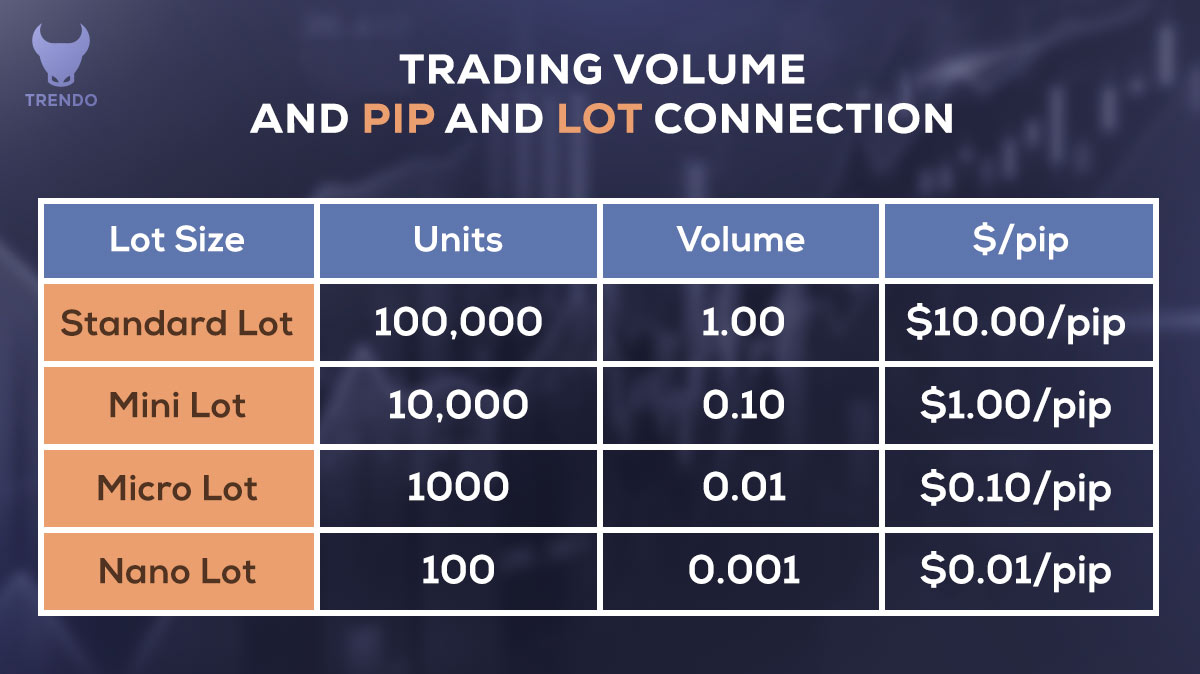

The lowest and highest amount of lots in brokers
The size of the lot for trading can vary depending on your broker. Most brokers, including Trendo International Broker, offer standard lots, mini lots, and micro lots for traders.
At Trendo Broker, the trading volume for each position ranges from a minimum of 0.01 lots to a maximum of 50 lots. This flexibility allows traders with any account balance to execute and manage their trades in the forex market effectively. As a result, traders with any amount of balance can execute and manage their trades in the forex market.
Choosing the right volume for trading
Capital management is a crucial principle in financial market trading. Given that each trader may have a unique capital management strategy and that trading volume is intrinsically linked to capital management, it’s essential to exercise caution when selecting a broker and the types of accounts they offer.
For instance, let’s consider trading in a real account with Trendo Broker. All accounts provided by Trendo Broker are of the ECN type.
To learn more about this account, you can refer to the following link:
Remember, the right knowledge and careful planning are key to successful trading.
As a professional trader, you must calculate your potential profit or loss before entering a trade and be fully prepared for both situations. We recommend never risking more than 2% of your total capital in one trade. Suppose an account balance is $1000. So, we can only risk $20 per trade. So, if the stop loss is activated in this transaction, we should lose $20 at most. Considering the value of $20, we go to the price chart.
For example, according to the picture below, we intend to enter into a transaction to buy gold at the 2144 price and set the stop loss at 2139.
Since our stop loss in this transaction is 50 pips, we calculate our trading volume via the following formula:
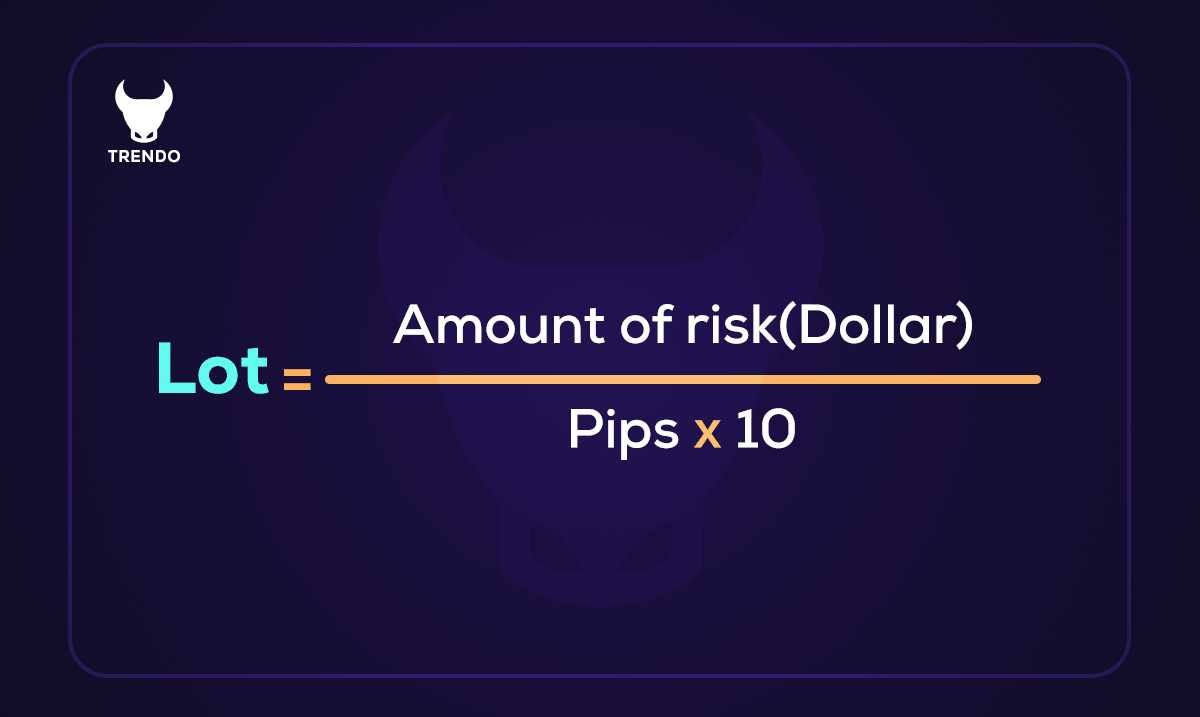

In this example, with a risk amount of $20 and a stop loss of 50 pips, our trading volume will be 0.04 lots. You can also easily use Trendo's Forex calculator to calculate your profit in a trade. Also, in case you want to know the concept of pip and how to calculate the profit and loss of your transactions, we recommend referring to the following article:
Read More: What is Pip in Forex?
Summary
In this article, we’ve explored the concept of ‘Lot’ and ‘trading volume’, and demonstrated how to calculate transaction volumes using a real account example from Trendo Broker. As a professional trader, it’s essential to apply this formula in every trade you make and maintain constant control over your risk in each transaction.
We recommend risking a maximum of 2% in one transaction and a maximum of 5% of your total capital on each trading day. This approach will help you manage your capital effectively and mitigate potential losses.
Article similaire
Le plus visité
0










